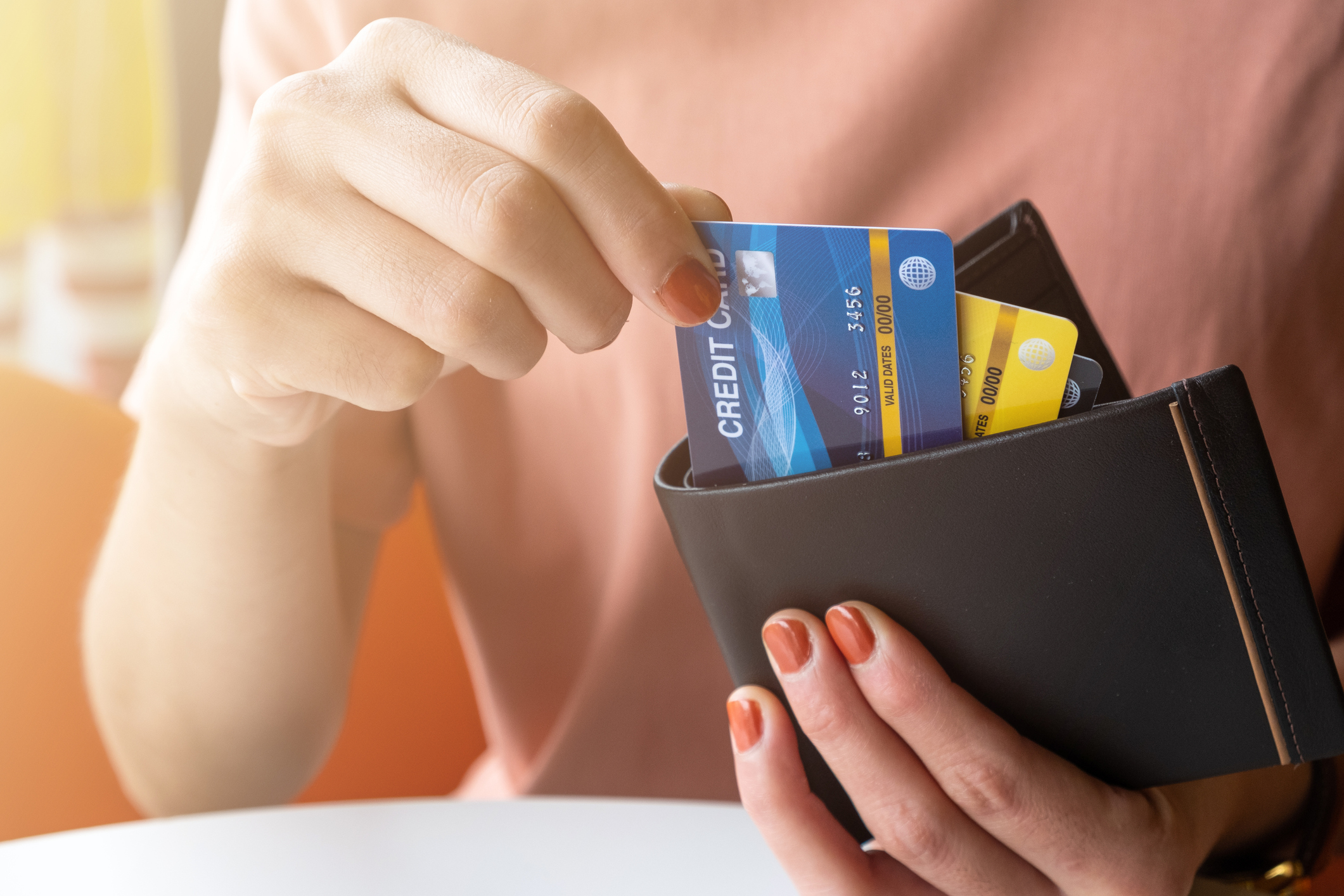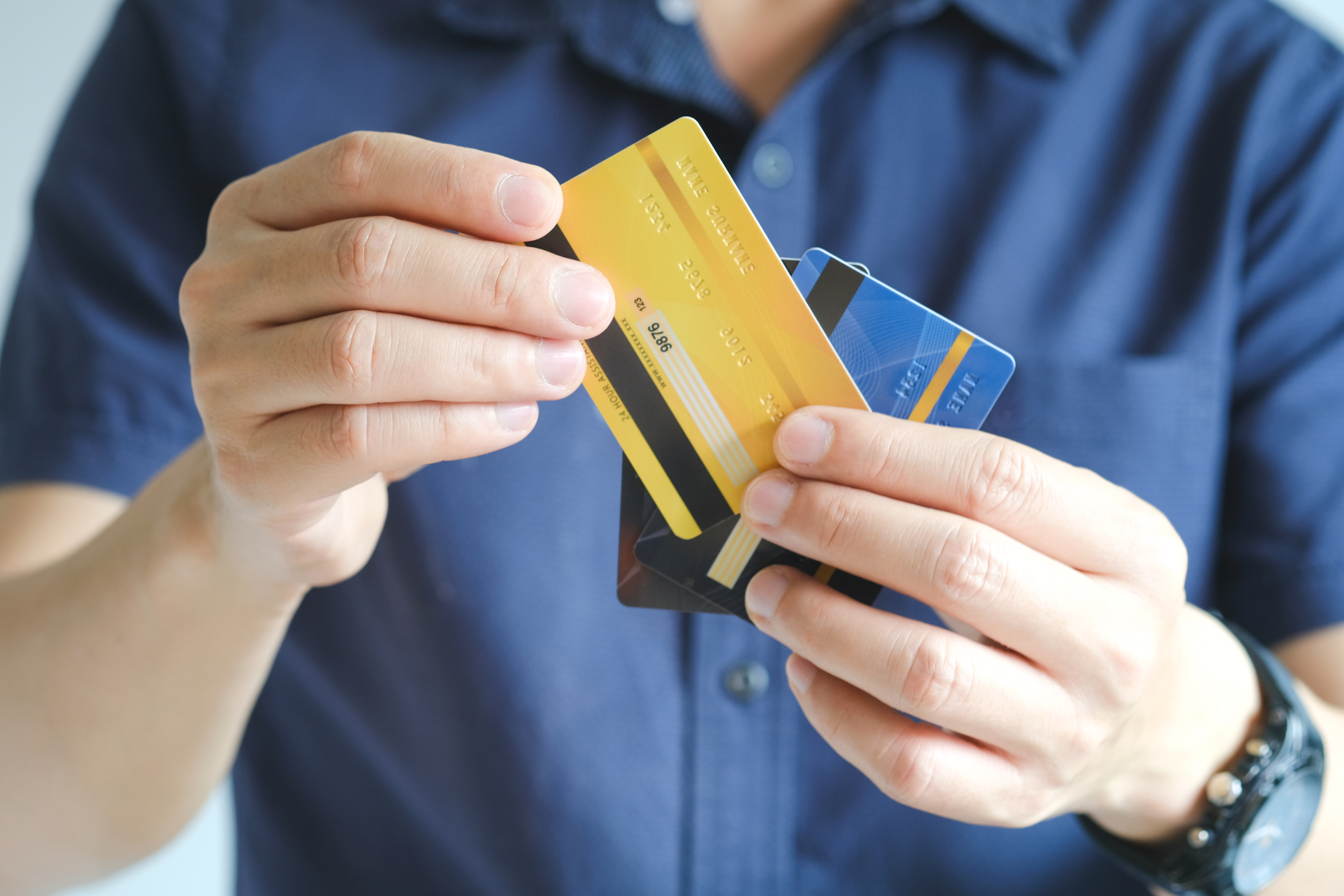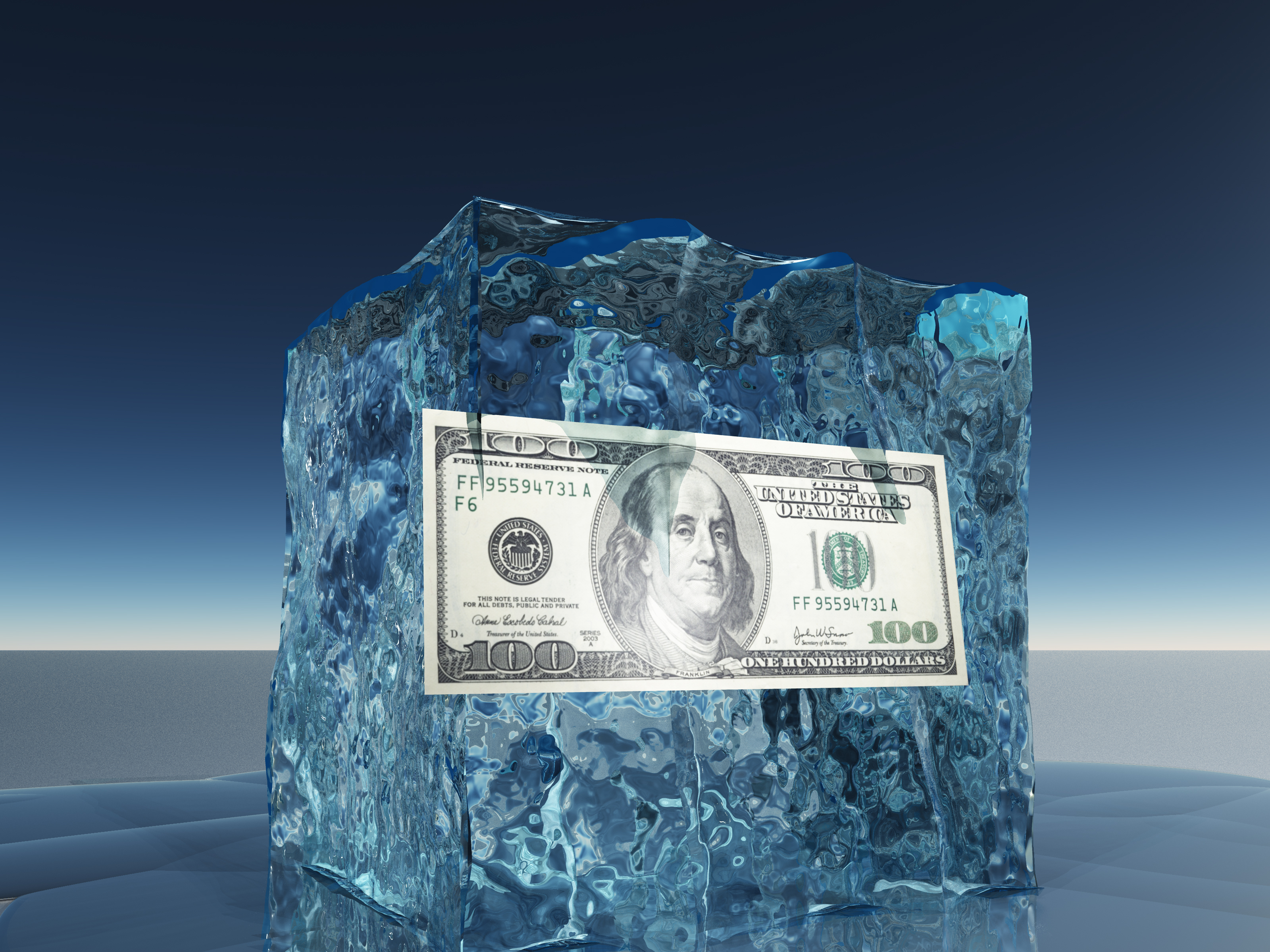Boost Your Credit Score in 2 Easy Steps
Once you learn your credit score and commit to improving it, you can make big gains with simple behaviors.

Profit and prosper with the best of Kiplinger's advice on investing, taxes, retirement, personal finance and much more. Delivered daily. Enter your email in the box and click Sign Me Up.
You are now subscribed
Your newsletter sign-up was successful
Want to add more newsletters?

Delivered daily
Kiplinger Today
Profit and prosper with the best of Kiplinger's advice on investing, taxes, retirement, personal finance and much more delivered daily. Smart money moves start here.

Sent five days a week
Kiplinger A Step Ahead
Get practical help to make better financial decisions in your everyday life, from spending to savings on top deals.

Delivered daily
Kiplinger Closing Bell
Get today's biggest financial and investing headlines delivered to your inbox every day the U.S. stock market is open.

Sent twice a week
Kiplinger Adviser Intel
Financial pros across the country share best practices and fresh tactics to preserve and grow your wealth.

Delivered weekly
Kiplinger Tax Tips
Trim your federal and state tax bills with practical tax-planning and tax-cutting strategies.

Sent twice a week
Kiplinger Retirement Tips
Your twice-a-week guide to planning and enjoying a financially secure and richly rewarding retirement

Sent bimonthly.
Kiplinger Adviser Angle
Insights for advisers, wealth managers and other financial professionals.

Sent twice a week
Kiplinger Investing Weekly
Your twice-a-week roundup of promising stocks, funds, companies and industries you should consider, ones you should avoid, and why.

Sent weekly for six weeks
Kiplinger Invest for Retirement
Your step-by-step six-part series on how to invest for retirement, from devising a successful strategy to exactly which investments to choose.
Whether you graduated school last week or last decade, you still have a very important grade to worry about: your credit score. This magic number is essentially a measure of how financially reliable you are and helps determine whether you can get a credit card, car loan, mortgage or other credit product -- and it affects the interest rate you'll face on your debt.
A high score will get you better rates and big savings. The FICO score, the most widely used model, ranges from 300 to 850. If you hit 760 or higher, you’ll earn an average rate of 4.6% on a $300,000 30-year fixed-rate mortgage. Scores between 620 and 639, however, fetch a rate of 6.2%, on average. So those top marks could save you nearly $300 on monthly mortgage payments, or more than $3,500 a year.
How to Track Your Credit Score
At www.annualcreditreport.com, you can get your credit report free once a year from each of the three credit bureaus -- Equifax, Experian and TransUnion. If you find any discrepancies in your report, be sure to dispute them. (See how associate editor Jessica L. Anderson fought an error on her own report in I Beat the Credit Bureaus.) A clean report can not only pump up your score but also help you land a job: According to the Society for Human Resource Management, 13% of employers said in a recent survey that they run credit-background checks on all job candidates, and 47% look at your credit report once you make it further into the hiring process.
From just $107.88 $24.99 for Kiplinger Personal Finance
Become a smarter, better informed investor. Subscribe from just $107.88 $24.99, plus get up to 4 Special Issues

Sign up for Kiplinger’s Free Newsletters
Profit and prosper with the best of expert advice on investing, taxes, retirement, personal finance and more - straight to your e-mail.
Profit and prosper with the best of expert advice - straight to your e-mail.
When you get your report, you’ll have to pay to learn your credit score. Each credit bureau will assign you a score based on its individual report on you. Equifax and TransUnion continue to issue FICO scores, created by Fair Isaac, which you can buy at www.myfico.com for $15.95. And for $7.95, Experian will sell you the VantageScore, a new model for scoring that all three bureaus created and which a growing number of financial institutions are taking into account.
The Challenges of Earning a Good Credit Score as a Young Adult
Earning a good score is less about your net worth and more about how you manage the money you have. In other words, there's plenty you can do to alter your score, and the sooner you start working on it, the better.
Unfortunately, fewer candles on your birthday cake means fewer opportunities thus far to prove your creditworthiness. “It does take a certain amount of credit history to develop a high FICO score,” says Barry Paperno, consumer operations manager of MyFico.com. “Anybody who’s new to credit is going to have a little difficulty getting a loan, particularly with credit products that require a very high score.” In fact, according to a recent survey from FindLaw.com, a consumer legal Web site, 18- to 34-year-olds are more than twice as likely to be turned down for a loan as any other age group.
That's bad news for my hubby and me. Like many young newlyweds, Dave and I are aspiring homeowners. And I worry that our credit scores -- specifically mine, as we discussed in our first money talk -- will keep us out of our dream house. We’ll have an especially tough time getting a good rate with today’s tightening credit standards. “What you could have gotten with a 740 in the past, you now need a 760,” says Paperno. “If you’re working your way slowly up the credit-score ladder, it’s going to take you a little longer.”
We’re still a couple years away from saving enough for a down payment, so we have plenty of time to boost our scores and improve our chances of earning the best mortgage rate.
The 2 Most Important Practices in Building a Strong Credit Score
To pump up your own score, I invite you to join me in focusing on the two fundamental practices that have a big effect on credit scores:
1) Pay your bills on time, every time. Payment history is the biggest factor in your scores, counting for 35% of your FICO score and 32% of your VantageScore. So paying your bills on time can be a big score booster.
Since first tracking my credit score three years ago, I've focused on paying every bill on time. Sure, I slipped up once or twice along the way, but my score now stands more than 130 points taller. As my dad always taught me, though, I can never rest on my laurels: According to MyFico.com’s simulator, if I miss even one payment in the coming months, my score could drop by nearly 100 points. “When you have a very limited amount of credit experience, the good and the negative tend to be more magnified,” says Paperno.
To ensure your payments are timely, sign up for reminders from your lender. If you use Mint.com -- our favorite budgeting site -- you can opt to get alerts via e-mail or text message for all your bills as the due dates approach.
2) Use available credit sparingly. The second biggest influence on your score is your credit-utilization ratio. Maxing out your cards is a big no-no, even if you pay them off every month. Since December, for example, when I had last checked my FICO score, I've paid special attention to limiting my new spending with an eye on my overall credit utilization at all times. That action alone already has hiked up my score by more than 50 points.
But you need to strike a balance. Locking up your cards and using no credit at all can also have a negative impact. “What’s important to show is that you use credit and you use it responsibly,” says Paperno, who recommends keeping a ratio in the single digits to get the best score. For example, FICO "High Achievers" -- the goody-two-shoes with scores of 760 or more -- use 7% of their available credit each month, on average.
Likewise, canceling a card -- say, because credit-card companies are raising rates and imposing crazy fees, including extra charges for not even using your card (seriously) -- may harm your score mainly because it would alter your credit-usage ratio.
For example, if you have two cards, each with a $1,000 limit, and you’ve charged $500 on one card and left the other card untouched, your ratio would be 25%. Closing the unused card would immediately bump your usage up to 50% and likely knock down your score.
Need help easing up on your credit use? Skip back to my column with 7 Sneaky Savings Strategies. Or try our advice to Save Money On Practically Everything.
Now that you know what not to do, test your knowledge on how to handle your credit with our Do You Know the Score on Your Credit? quiz. And as usual, share your thoughts with us in the comment box below.
Profit and prosper with the best of Kiplinger's advice on investing, taxes, retirement, personal finance and much more. Delivered daily. Enter your email in the box and click Sign Me Up.

Rapacon joined Kiplinger in October 2007 as a reporter with Kiplinger's Personal Finance magazine and became an online editor for Kiplinger.com in June 2010. She previously served as editor of the "Starting Out" column, focusing on personal finance advice for people in their twenties and thirties.
Before joining Kiplinger, Rapacon worked as a senior research associate at b2b publishing house Judy Diamond Associates. She holds a B.A. degree in English from the George Washington University.
-
 Dow Adds 1,206 Points to Top 50,000: Stock Market Today
Dow Adds 1,206 Points to Top 50,000: Stock Market TodayThe S&P 500 and Nasdaq also had strong finishes to a volatile week, with beaten-down tech stocks outperforming.
-
 Ask the Tax Editor: Federal Income Tax Deductions
Ask the Tax Editor: Federal Income Tax DeductionsAsk the Editor In this week's Ask the Editor Q&A, Joy Taylor answers questions on federal income tax deductions
-
 States With No-Fault Car Insurance Laws (and How No-Fault Car Insurance Works)
States With No-Fault Car Insurance Laws (and How No-Fault Car Insurance Works)A breakdown of the confusing rules around no-fault car insurance in every state where it exists.
-
 TransUnion Fined $23M For Tenant Screening, Credit Freezes
TransUnion Fined $23M For Tenant Screening, Credit FreezesGovernment charges TransUnion over illegal rental background checks and security freezes on consumer credit reports.
-
 Credit Cards vs Charge Cards: What Are the Differences?
Credit Cards vs Charge Cards: What Are the Differences?All you need to know about credit cards vs charge cards — differences, pros and cons.
-
 Four Smart Steps To Take Before Buying Your First Home
Four Smart Steps To Take Before Buying Your First Homehome Buying your first home can be daunting. Here are four things you need to do years before you start house-hunting to prepare financially for the biggest purchase of your life.
-
 How Many Credit Cards Should I Have?
How Many Credit Cards Should I Have?How many credit cards should you have? The answer isn’t as straightforward as you might think — it all depends on your financial situation.
-
 Credit card delinquency expected to increase in 2023
Credit card delinquency expected to increase in 2023Credit card and personal loan delinquency rates are expected to increase this year.
-
 What Is a Good Credit Score?
What Is a Good Credit Score?Having a good credit score can save you hundreds, even thousands of dollars on credit cards, mortgages and other loans.
-
 Best Credit Cards for Bad Credit 2023
Best Credit Cards for Bad Credit 2023If used wisely, these credit cards can help you dig out of bad credit; you may even earn 2% cash back.
-
 How to Freeze Your Credit in Three Steps
How to Freeze Your Credit in Three Stepscredit & debt Freezing your accounts at the three major credit bureaus is the best way to prevent thieves from opening new credit accounts in your name.